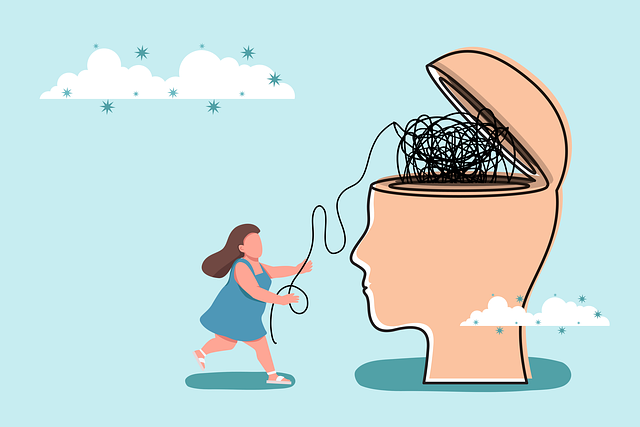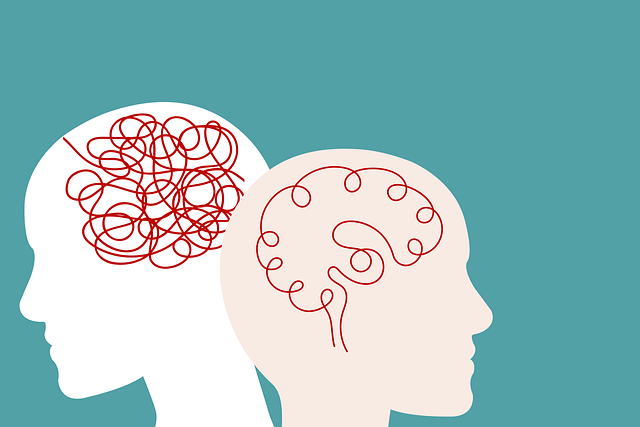Centennial Mandarin Chinese Speaking Therapy leverages group facilitation as a powerful tool for mental wellness support, creating safe spaces where participants share experiences, gain insights, and find emotional healing. Skilled facilitators guide sessions that emphasize cultural values, address language barriers, and reduce stigma, fostering community engagement and mutual support. They employ active listening, non-verbal cues, and mindfulness techniques to enhance communication and promote emotional well-being. The nurturing environment established by facilitators ensures every member feels validated and safe to express themselves, enabling collective resilience and trauma coping on mental health journeys.
In today’s digital era, mental wellness group facilitation plays a pivotal role in enhancing community support. This article explores effective techniques tailored specifically for Centennial mandarin Chinese-speaking therapy groups. We delve into understanding the unique benefits of group facilitation, focusing on cultural considerations and communication strategies. By creating safe, supportive environments, facilitators can foster profound connections, mirroring vibrant, bustling communities. Embracing these practices ensures inclusive, impactful therapy sessions that resonate with diverse populations.
- Understanding the Role of Group Facilitation in Mental Wellness
- Cultural Considerations: Tailoring Techniques for Mandarin Chinese Speakers
- Effective Communication Strategies for Group Sessions
- Creating a Safe and Supportive Environment in Therapy Groups
Understanding the Role of Group Facilitation in Mental Wellness

In the realm of mental wellness, group facilitation plays a pivotal role in fostering a supportive environment for individuals seeking therapy. At Centennial Mandarin Chinese Speaking Therapy, we recognize that group dynamics offer unique advantages in promoting healing and personal growth. By facilitating these groups, therapists create a safe space where participants can connect with like-minded peers, share experiences, and gain valuable insights from one another. This collective approach enhances the therapeutic process, as individuals often find solace and strength in knowing they are not alone in their struggles.
Through skilled group facilitation techniques, therapists guide members through emotional healing processes, encourage open communication, and facilitate activities that boost confidence and self-esteem. The interdependence within a group setting can significantly contribute to anxiety relief, as social support networks are built and strengthened. This collaborative aspect of therapy empowers participants to navigate their mental health journeys with renewed perspective and resilience, ultimately fostering a sense of community and belonging.
Cultural Considerations: Tailoring Techniques for Mandarin Chinese Speakers

Facilitating mental wellness groups for Mandarin Chinese-speaking individuals requires a nuanced approach, especially when addressing cultural considerations. In China and among diaspora communities, there is a rich tradition of collective support and community engagement. Group therapy sessions can be adapted to emphasize these cultural values by incorporating elements of community building and fostering open dialogue. This inclusive environment encourages participants to share their experiences and offer mutual support, creating a sense of belonging.
Tailoring techniques for this specific demographic involves recognizing the impact of language barriers and potential differences in understanding mental health concepts. Centennial Mandarin Chinese-speaking therapy sessions can effectively use culturally relevant activities and examples to illustrate therapeutic principles, enhancing anxiety relief and reducing the mental illness stigma. Additionally, incorporating social skills training within group settings allows individuals to practice communication strategies while navigating cultural nuances, thereby improving their overall well-being.
Effective Communication Strategies for Group Sessions

In group therapy sessions at Centennial Mandarin Chinese Speaking Therapy, facilitators play a pivotal role in ensuring open and effective communication among participants. One powerful strategy involves active listening, where the facilitator demonstrates genuine interest by paraphrasing and summarizing each speaker’s thoughts, fostering an inclusive environment. This technique not only encourages members to share their experiences but also helps them feel heard and validated, crucial aspects of emotional well-being promotion techniques.
Additionally, non-verbal cues like facial expressions and body language can greatly enhance group dynamics. Facilitators should be mindful of these cues to gauge the emotional state of each participant, enabling them to adapt their approach accordingly. By combining active listening with conscious non-verbal communication, facilitators can navigate complex discussions, address underlying issues, and ultimately contribute to effective communication strategies within the group setting, aligning with the goals of public awareness campaigns development for emotional regulation.
Creating a Safe and Supportive Environment in Therapy Groups

Creating a safe and supportive environment is paramount when facilitating therapy groups, particularly in a diverse setting like Centennial Mandarin Chinese Speaking Therapy. Group members must feel comfortable expressing their thoughts and emotions freely, knowing they will be met with empathy and understanding. Facilitators can foster this by establishing clear boundaries, ensuring confidentiality, and promoting active listening among participants. Incorporating cultural sensitivity is essential, especially when serving a community with varied backgrounds, to ensure everyone feels seen and respected.
Effective facilitation involves creating a non-judgmental space that encourages open dialogue. This environment should also facilitate burnout prevention strategies for healthcare providers, as supporting others’ mental wellness can be emotionally taxing. By prioritizing confidence boosting and trauma support services, facilitators enable group members to build resilience and develop coping mechanisms. Through these practices, therapy groups can become powerful safe havens where individuals can navigate their mental health journeys together.
Group facilitation plays a pivotal role in enhancing mental wellness, especially within diverse communities like the Centennial Mandarin Chinese speaking therapy groups. By understanding cultural nuances and employing tailored techniques, facilitators can create safe and supportive environments that foster meaningful connections and positive outcomes. Effective communication strategies are key to navigating complex issues, ensuring every member feels heard and valued. This holistic approach not only benefits individual participants but also contributes to a vibrant tapestry of mental health support within the community.









